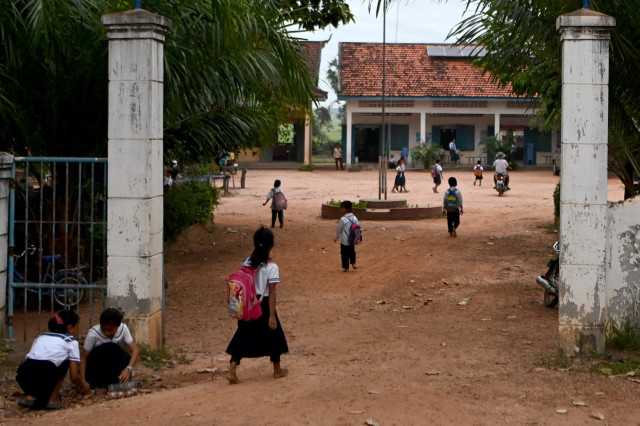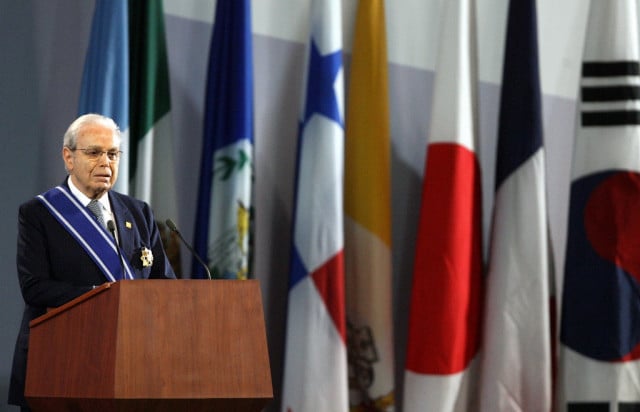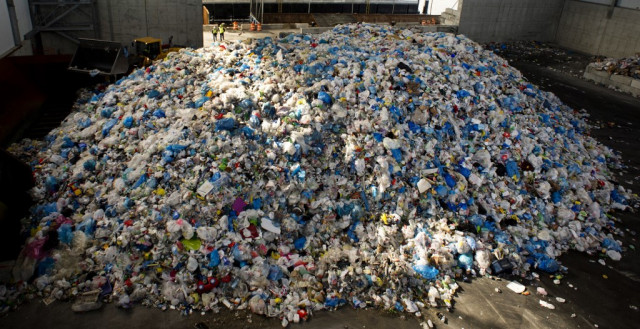School Health and Inclusive Education in Kampot Province

- By Sreynich Leng
- June 20, 2023 12:50 PM
The Ministry of Education, Youth, and Sport (MoEYS) developed National Policy on School Health in 2019 to improve education quality by promoting learners' and educators' health and well-being.
Back in 2018, Inclusive Education Policy was created to ensure that all children are included in all education system forms. This applies to both formal and non-formal; regardless of their special education needs or disadvantages, they face physical, behavioural, intellectual, or other cultural, social, financial, or environmental limitations.
According to a research study conducted on the School Health and Inclusive Education Policy in early February 2023 among 120 schools in Kampot province, 50 percent of the schools have had students with physical disabilities; however, it is still doubtful how much effort has been put at sub-national level to ensure inclusive education among students with special needs are met. For instance, the study has shown that only 35% of the schools had toilet facilities, classrooms, and school grounds made available and accessible to wheelchair users.
The same study also revealed that all school managements in the province have been aware of the School Health and Inclusive Education Policy. However, they did not have a precise mechanism to further orient teachers or other staff on implementing the policies.
It indicates that the health and well-being of students, especially those from marginalized groups, have been neglected. For example, based on the evaluation, 52 percent of the students said that the handwashing place was not accessible to wheelchair users and students with limited mobility, and 46 percent of the students said they had problems accessing or using the toilet facilities.
The policy of Inclusive Education also highlights different aspects of disabilities or special education needs among students. Based on the research, most schools did not have enough teachers to offer special support to students with disabilities, and most school principals and teachers are only aware of physical disabilities.
The challenges being discussed above suggests that education stakeholders, specifically the school management, principals, and teachers, need support in terms of awareness raising and knowledge improvement on School Health and Inclusive Education policies, capacity building on developing mechanism and skills to support students with disabilities, as well as teaching and learning resources and materials for students with special education needs.
School principals and teachers should be provided with training and technical support to identify and access not only the physical disabilities of the students but also other aspects of disabilities such as vision and hearing impairment and intellectual and learning disabilities.
The Working Group on Children with Disability, organized by disability-focused civil society organizations both at the provincial and district level, should collaborate with school management and principals to develop policy action plans that are user-friendly and practical for teachers.
Government officials from MoEYS, the Provincial Office of Education (PoE), the District Office of Education (DoE), school management, principals, and teachers are crucial in ensuring policy implementation. For effective policy implementation, it is necessary to promote understanding, awareness, and participation of relevant stakeholders, including, but not limited to, government officials, non-governmental organizations, parents, and students. It is significant for these stakeholders to share their common ground regarding the policy and keep engaging different stakeholders in the policy cycle, implementation, and process. Secondly, inclusive measures ensure that all businesses benefit from trade facilitation, regardless of size or ownership.
It is, thus, necessary for PoE, DoE, and school to form and improve collaborations with health and disabilities service delivery NGOs to build up PoE, DoE, and school‘s capacity and knowledge through refresher training on health concept integration in lesson plans, training to assess and remove barriers to inclusion in school and support for students with disability through the improvement of the school environment and infrastructure.
Since PoE and DoE also have various priorities and action plans, disabilities and health-focused organizations should support PoE and DoE in setting priorities around school health and inclusive education by maximizing resources, developing specific activities, and allocating resources to ensure policy implementation.
All in all, it is crucial to understand that the successful implementation of the School Health and Inclusive Education policies cannot be made by a single stakeholder such as PoE, DoE, school committees or teachers. It needs proactive involvement and joint efforts of all relevant partners and individuals, including members of civil society organizations, developing partners, parents, caretakers and students.
This commentary is written by a fellow of the Adenauer Young Scholars for Excellence Fellowship 2023 as part of their assignment in the program. The views presented in this paper do not necessarily reflect those of the editors, the program, and the Konrad-Adenauer-Stiftung Cambodia and Institute for International Studies and Public Policy of the Royal University of Phnom Penh.
Edited by: Chansok LAK, Senior Lecturer at IISPP















